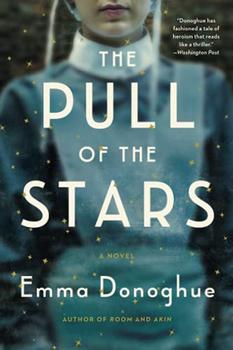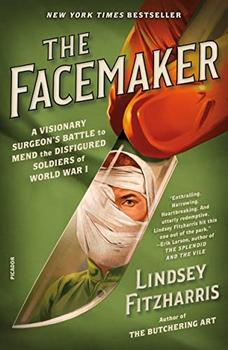Summary | Excerpt | Reviews | Beyond the book | Read-Alikes | Genres & Themes | Author Bio

In Dublin, 1918, a maternity ward at the height of the Great Flu is a small world of work, risk, death, and unlooked-for love, in "Donoghue's best novel since Room" (Kirkus Reviews).
In an Ireland doubly ravaged by war and disease, Nurse Julia Power works at an understaffed hospital in the city center, where expectant mothers who have come down with the terrible new Flu are quarantined together. Into Julia's regimented world step two outsiders -- Doctor Kathleen Lynn, a rumoured Rebel on the run from the police, and a young volunteer helper, Bridie Sweeney.
In the darkness and intensity of this tiny ward, over three days, these women change each other's lives in unexpected ways. They lose patients to this baffling pandemic, but they also shepherd new life into a fearful world. With tireless tenderness and humanity, carers and mothers alike somehow do their impossible work.
In The Pull of the Stars, Emma Donoghue once again finds the light in the darkness in this new classic of hope and survival against all odds.
The decision to focus on a restricted timeframe of just three days allows Donoghue to show how relentless a nurse's work really was during this time. Distressing scenes are presented in excruciating detail, drawn out to an almost painful extent, but this makes the vital tension-breaking moments of friendship, love and light all the more poignant and impactful. Beyond the gripping narrative and its endearing characters, the book serves as a love letter to all the women who sacrifice themselves mind, body and soul in the name of caring for others — a theme that resonates as powerfully today as it ever did...continued
Full Review
(630 words)
This review is available to non-members for a limited time. For full access,
become a member today.
(Reviewed by Callum McLaughlin).
 Often referred to as the Spanish Flu, the 1918 flu pandemic is one of the deadliest viral outbreaks the world has ever seen. Hitting its peak at the tail-end of World War I, record-keeping was poor by modern standards, but it is estimated that some 500 million people (about a quarter of the world's population at the time) became infected across its three waves, with around 50 million of them succumbing to the illness.
Often referred to as the Spanish Flu, the 1918 flu pandemic is one of the deadliest viral outbreaks the world has ever seen. Hitting its peak at the tail-end of World War I, record-keeping was poor by modern standards, but it is estimated that some 500 million people (about a quarter of the world's population at the time) became infected across its three waves, with around 50 million of them succumbing to the illness.
Though its common moniker suggests the outbreak originated in Spain, this is in fact untrue. With much of Europe embroiled in the ongoing conflict of WWI, many countries were subject to strict news censoring and media blackouts by the time the virus emerged. Not wishing to further damage morale among citizens already living...
This "beyond the book" feature is available to non-members for a limited time. Join today for full access.

If you liked The Pull of the Stars, try these:

by Ritu Mukerji
Published 2024
For fans of Jacqueline Winspear and Charles Todd, Murder by Degrees is a historical mystery set in 19th century Philadelphia, following a pioneering woman doctor as she investigates the disappearance of a young patient who is presumed dead.

by Lindsey Fitzharris
Published 2023
Lindsey Fitzharris, the award-winning author of The Butchering Art, presents the compelling, true story of a visionary surgeon who rebuilt the faces of the First World War's injured heroes, and in the process ushered in the modern era of plastic surgery.